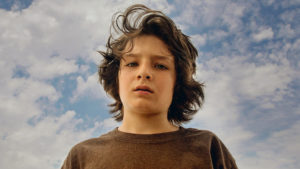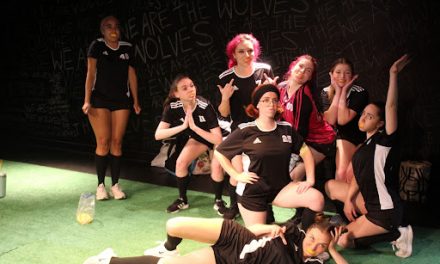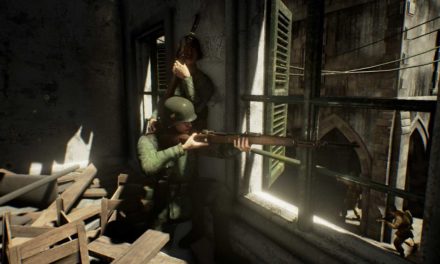While other films about the ‘90s might be nostalgia-fueled trips full of punk-rock, popular TV and classic video games, “Mid90s” doesn’t shy away from the characteristics of the decade that are often lost among “the good old days.” The film, a promising screenwriting and directorial debut for Jonah Hill, finds a humble and honest voice that realistically portrays its characters.
The movie begins with the main character, 13-year-old Stevie (Sunny Suljic), being thrown against the walls of his home in a brutal fist fight with his brother. The scene introduces us to Stevie’s dismal home life, and what follows is his journey to find someplace where he is accepted. Stevie joins a group of skaters that he looks up to, made up of unintelligent but aspirational Fourth Grade (Ryder McLaughlin); self-conscious and uncertain Ruben (Gio Galicia); unmotivated but free-spirited Fuckshit (Olan Prenatt); and kindhearted and hopeful Ray (Na-kel Smith). As Stevie and the group spend the summer together, he learns how to be “cool” like them, but he’s also sent on a downward spiral as he encounters the dramas of real life (substance abuse, toxic friendships and poverty), for which he may not be ready.
The cast’s excellent performances provide a strong backbone for this emotional journey. The acting rarely feels dramatic — it’s down-to-earth, like the characters are people any viewer could know. Comedic parts of the movie play off this tone. The scenes don’t really derive any humor from gags or ironic situations, but rather idle conversation that just sounds like something friends would talk about on a lazy afternoon.
Stevie’s perspective is the center of the film. Other characters are hardly present unless Stevie is in the scene with them. Consequently, the audience builds a relationship with the group of skaters much like Stevie does. This technique makes the characters feel grounded and relatable, because the audience is just as much a part of the group as Stevie.
The 3:4 aspect ratio used for the film (making it look like an old CRT TV) could have come off as cheesy, but the smaller screen space, combined with the way characters are framed, makes the performances feel more personal. However, the shots are often static. And while the editing is excellent at times, it more often feels like it’s just getting the job done. This isn’t much of an issue because the best moments of the film are, undeniably, when characters are just talking to one another, but it leaves the feeling that there was an opportunity to do more visually.
The soundtrack suits the film and is delightfully more than just ‘90s callback songs. But the music often seems too loud, to the extent that it can become distracting or even drown out the dialogue. It makes listening to the film an odd experience: the songs work well yet can feel overpowering to the movie.
The film has some excellent dynamics and dualities —Stevie’s and Ruben’s being one of the most poignant — yet they feel underdeveloped later in the film, despite how important they seemed early on. Katherine Waterston as Stevie’s mother Dabney is intriguing and leaves the viewer wanting more about her character. However, she has very little presence in the film with no apparent explanation, which seems odd for a parental character given how badly her son is behaving. The movie also seems to have trouble with consequences. One stand-out example is when Stevie has a heartfelt conversation with Ray (followed by the best montage in the film) that the movie seems to suggest ought to change Stevie for the better. Yet, instead of developing further, when we see Stevie next, he is more of an angsty and apathetic delinquent than ever. Finally, the conclusion feels rushed: it’s an odd mix of weird pacing and satisfying goals, yet a lackluster presentation that feels like a couple steps of character development were skipped.
These issues aren’t very big in the grand scheme of the film, because the performances and Hill’s are writing so interesting, but they create a sense of inconsistency. The movie can be surface-level fun for those looking for a good dramedy, and a good thought-provoker for those looking to read deeper. The film, in its authentic feel, leaves the audience with much to think about. Yet little flaws make the film feel like it doesn’t know its message, even though it might not need to. This is a movie about characters trying to find their way in a challenging world, where hardly anyone really knows who they want to be and almost everyone is trying to be someone or somewhere else.
Grade: A-
Rhett Hipp (22C) is from Winter Park, Florida, majoring in film and media studies, creative writing and Japanese language and culture. Along with writing for the Wheel, Hipp is the current vice president of Emory’s Japanese Cultural Club. He reviews films, games and anime. Contact Hipp at rhett.hipp@emory.edu.







